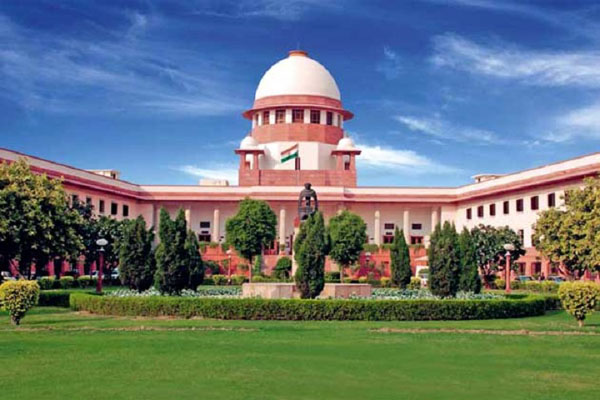NEW DELHI: The Supreme Court has asked the Centre if state commissions for women (SCW) actually exist across the country.
The top court raised the question as it dealt with the issue of precarious conditions faced by destitute widows living in Vrindavan and such other places.
The apex court, which is hearing a matter pertaining to the condition of such widows across the country, told the Centre that if SCWs did not exist in the states, then the concerned state governments should be asked to ensure setting up of such panels.
“The solicitor general should also inform us whether the SCW is actually existing in all the state governments and if not, then a communication to the state governments be sent to ensure that these SCW should be in place in accordance with the statute,” a bench headed by Justice M B Lokur said.
The Centre told the bench, which also comprised Justices S Abdul Nazeer and Deepak Gupta, that it would furnish an affidavit on the agreed action plan, which contains several steps required to be taken to improve the situation of the destitute widows.
The court asked the Centre to do the needful within six weeks and fixed the matter for hearing on December 6.
In August, the top court had said that the ostracised destitute widows belong to the “socially disadvantaged class” of society and were not treated with the dignity they deserve in the shelter homes in Vrindavan and elsewhere.
It had equated them with socially underprivileged groups who have no real access to justice, are voiceless and were needed to be empowered.
“There can be little or no doubt at all that widows in some parts of the country are socially deprived and to an extent ostracised. Perhaps this is the reason why many of them choose to come to Vrindavan and other ashrams where, unfortunately, they are not treated with the dignity they deserve,” the bench had then said.
“It is to give voice to these hapless widows that it became necessary for this court to intervene as a part of its constitutional duty and for reasons of social justice to issue appropriate directions,” it had said.
Observing that encouraging widow re-marriage was a “subject of hope”, it had set up a six-member committee to study the reports on their condition furnished in the apex court and come up with a common working plan by November 30 this year.
The apex court had earlier taken note of the “pathetic” condition of widows after a petition was filed in 2007 highlighting how they lived in the welfare homes of Vrindavan.
It had referred to various reports filed by the National Legal Services Authority, District Legal Services Authority and National Commission for Women on the condition of shelter homes for widows in Vrindavan.
One of the reports had said there was lack of proper toilets and bathrooms in the shelter homes, besides poor water and electricity facilities. (AGENCIES)
Trending Now
E-Paper


